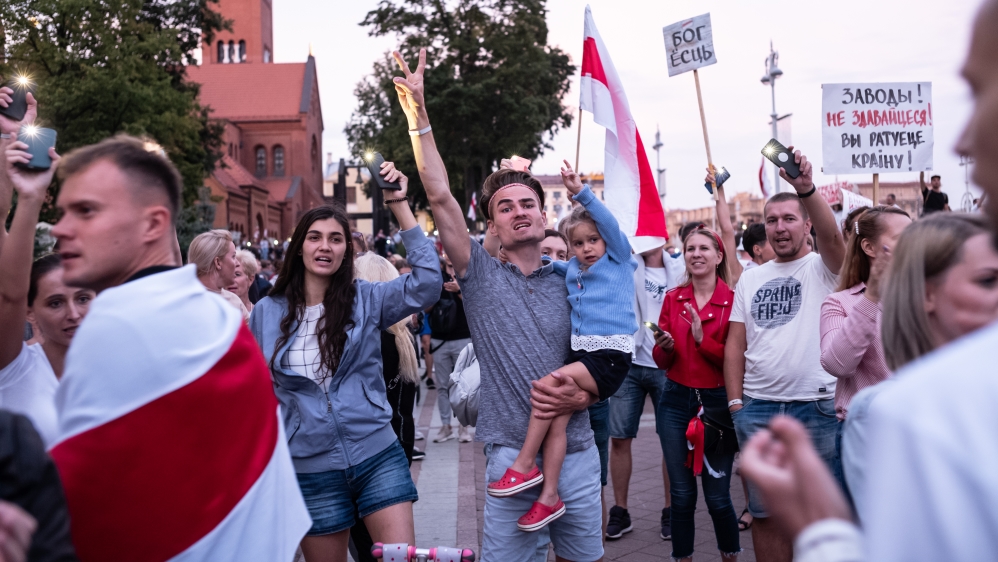EU rejects Belarus vote result, warns of imminent new sanctions
The EU sanctions will hit ‘a substantial number of individuals responsible for violence, repression and election fraud’.

The European Union has rejected the result of the disputed Belarus election, saying President Alexander Lukashenko’s victory was neither free nor fair, and warned of imminent fresh sanctions against his government.
After Wednesday’s emergency video summit, EU Council President Charles Michel told the people of Belarus the bloc stood “by your side” as unprecedented protests against Lukashenko entered an 11th day.
Keep reading
list of 4 itemsAre more European nations finally moving to recognise Palestine statehood?
EU lawmakers approve sweeping overhaul of asylum and migration rules
EU Parliament committee urges probe after Al Jazeera Senegal investigation
German Chancellor Angela Merkel called for national dialogue in Belarus – including Lukashenko, who has ruled for 26 years – to find a peaceful way out of the crisis.
The EU has been working on a new round of sanctions against Belarus, targeting those involved in allegedly fixing the August 9 vote and in the bloody repression of protests, which have shaken Lukashenko’s grip on the ex-Soviet republic as never before.
Michel said this would lead “shortly” to “a substantial number of individuals responsible for violence, repression and election fraud” being hit with EU travel bans and asset freezes.
|
|
“These elections were neither free nor fair and did not meet international standards. We don’t recognise the results presented by the Belarus authorities,” Michel told reporters.
“The people of Belarus deserve better. They deserve the democratic right to choose their leaders and shape the future.”
Call for dialogue
Michel, along with Merkel and French President Emmanuel Macron, all held telephone talks with Lukashenko’s close ally Russia to push for dialogue to end the crisis peacefully.
Russian President Vladimir Putin has said that his country could intervene in the crisis and this week warned against “unacceptable” foreign interference in Belarus or pressure on its leadership.
Ahead of the summit, Belarus opposition leader Svetlana Tikhanovskaya, a 37-year-old political novice who fled to neighbouring Lithuania after claiming victory in the vote, called on EU leaders “not to recognise these fraudulent elections”.
Afterwards, Merkel told reporters in Berlin “there is no doubt that there were massive rule violations in the election” and said the people of Belarus – sometimes described as “Europe’s last dictatorship” – must have the right to choose their future.

“The people in Belarus know what they want … that’s why we want an independent path for Belarus where the political conditions are decided by the country itself,” she said.
Merkel also revealed that Lukashenko had rebuffed her offer of a phone call.
“Mr Lukashenko rejected the telephone call, which I regret. You can only mediate when you are in touch with all sides.”
Lukashenko’s claim to victory in the election with 80 percent of the ballot sparked the largest demonstrations in Belarus since it gained independence with the 1991 collapse of the Soviet Union.
As the meeting began, Dutch Prime Minister Mark Rutte said the EU “cannot accept the result of these elections” and called for “resolute and concerted” action.